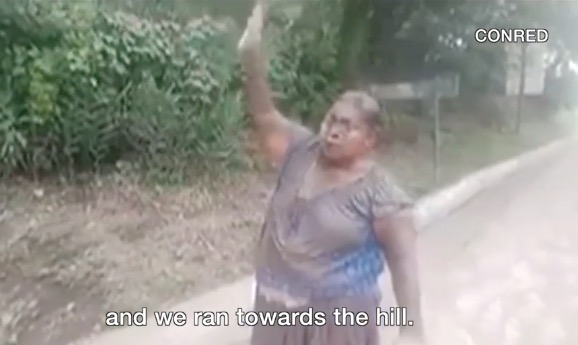Dozens of people in Guatemala are feared to be dead after the Fuego volcano erupted, sending fast-moving flows to lava to nearby villages.
The death toll is expected to rise, and more than 3,000 people have been evacuated, the BBC reported.
One survivor, covered in volcanic ash, was interviewed by a reporter and said she believed her family was buried.
The volcano, located southwest of Guatemala City, spewed rock, gas, and ash into the air after the deadly activity began on Sunday.
Guatemalan president Jimmy Morales has declared three days of mourning to honor those who died from the natural disaster, which he said in a statement caused “deep pain” and “irreparable losses” in human lives.
The president declared a national disaster Sunday after the volcanic activity began, and hundreds of police officers, members of the military and emergency workers descended to the slopes of the volcano.
Erupción del #VolcánDeFuego.
Habrá conferencia de prensa a las 6:00 pm, por favor estar pendientes, ya se ha convocado al sistema nacional de emergencias.— Jimmy Morales (@jimmymoralesgt) June 3, 2018
The head of the country’s National Disaster Management Agency, Sergio Cabañas, said the town of El Rodeo had been “buried”.
The towns of Alotenango and San Miguel los Lotes were also affected, and first responders are continuing to try and reach other villages.
Fuego is one of Latin American’s most active volcanos. In 1974, an eruption destroyed nearby farms, but no deaths were reported, and in February of this year, it sent ash about a mile into the sky.
Guatemala volcano: Several dead as Fuego volcano erupts https://t.co/EKlhDpygr3
— BBC News (World) (@BBCWorld) June 3, 2018
Sundays events were much more active, with ash reaching almost 4 miles into the sky, with a mix of red-hot rock and gas streaming down the mountainside to engulf the villages surrounding it.
Ash has been falling as far as Guatemala City, and the runways at La Aurora airport are being cleared. About 1.7 million people have been affected by the disaster.
Guatemala has not experienced such a mass scale of deaths from volcanic activity since 1902, when the Santa Maria volcano killed thousands of people.
(H/T: BBC)


